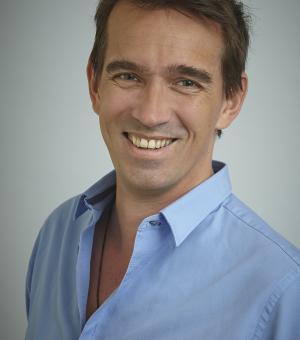風蕭蕭_Frank
以文會友The Silk Road: A New History
https://www.amazon.ca/Silk-Road-New-History/
by Valerie Hansen July 18 2012
The Silk Road is as iconic in world history as the Colossus of Rhodes or the Suez Canal. But what was it, exactly? It conjures a hazy image of a caravan of camels laden with silk on a dusty desert track, reaching from China to Rome. The reality was different, and far more interesting, as revealed in this new history. In The Silk Road, Valerie Hansen describes the remarkable archaeological finds that revolutionize our understanding of these trade routes.
For millennia, key records remained hidden - often deliberately buried by bureaucrats for safe keeping. But the sands of the Taklamakan Desert have revealed fascinating material, sometimes preserved by illiterate locals who recycled official documents to make insoles for shoes or garments for the dead. Hansen explores seven oases along the road, from northwest China to Samarkand, where merchants, envoys, pilgrims, and travelers mixed in cosmopolitan communities, tolerant of religions from Buddhism to Zoroastrianism.
Hansen notes that there was no single, continuous road, but a chain of markets that traded between east and west. China and the Roman Empire had very little direct trade. China's main partners were the peoples of modern-day Iran, whose tombs in China reveal much about their Zoroastrian beliefs. Hansen writes that silk was not the most important good on the road; paper, invented in China before Julius Caesar was born, had a bigger impact in Europe, while metals, spices, and glass were just as important as silk. Perhaps most significant of all was the road's transmission of ideas, technologies, and artistic motifs. The Silk Road is a fascinating story of archeological discovery, cultural transmission, and the intricate chains across Central Asia and Southeast Asia.
Professor Peter Frankopan
https://www.history.ox.ac.uk/people/professor-peter-frankopan

I work on the history of the Mediterranean, Russia, the Middle East, Persia, Central and Southern Asia, and on relations between Christianity and Islam. I am particularly interested in exchanges and connections between regions and peoples.
Peter Frankopan is Professor of Global History, Director of the Oxford Centre for Byzantine Research and Senior Research Fellow at Worcester College. He specialises in the history of the Byzantine Empire in the 11th Century, and in the history of Asia Minor, Russia and the Balkans. He works on medieval Greek literature and rhetoric, and on diplomatic and cultrual exchange between Constantinople and the islamic world, western Europe and the principalities of southern Russia.
History of the Byzantine Empire, 800-1204; Byzantium and its neighbours; the Komnenoi; heresy; medieval Greek and Latin literature; national identities; state formation in the medieval world.
Research Interests
- The Byzantine Empire
- The Silk Roads, past, present and future
- Russia, from its origins to the present day
- The role of faith and religion in the ancient, medieval and modern world
- Economic, cultural and intellectual history
It feels like we are living in turbulent times: climate change, religious fundamentalism and new technologies seem to challenged the way we live. Major geopolitical change to is unsettling, with economic stagnation and dissonance in the western world a sharp contrast to the rising economic, political and military ambitions of countries in Asia. If we are to understand the world around us, we need to study its past.
I have spent more than two decades at Oxford working on peoples, countries and regions that have been ignored for too long: children at school and even undergraduates at university spend precious little time on Russia, Iran, the Byzantine Empire, the Gulf region, Central and South Asia and China – if they spend any time on them at all.
My work centres on looking at connections and exchange, and trying to better make sense of the way the world hangs together. I do this by using as many different sources I can find and use reliably, from narrative written accounts to archaeological surveys, but paying particular attention to recent scientific advances: we can learn a great deal from pollen counts, ice core evidence and even from parasitic deposits in latrines that show how people actually travelled – rather than how they were said to travel.
I love being a historian. What I love best is being able to ask questions about anything and everything. I love being able to follow my instincts and to look into topics that interest me – even when that means having to go back to the basics and start from the beginning. I have learnt how important it is to have an open mind and how to beware of pre-conceived ideas that have either already formed in my mind or which have been pressed into it by my own experiences, biases and assumptions.
Studying history does not have to involve the present; as it happens, the area that lies between the Eastern Mediterranean and the Pacific coast of China is experiencing a time of profound change. Following what is happening, and trying to see what we can learn from the past is better than the best coffee you can find in Oxford. And these days you can find really, really good coffee in Oxford.
Every day is different – that is something I really love. I might be trying to write something about the Theodosian walls of Constantinople or the delivery of fresh water along the city’s aqueducts; or about the gift of a Christian psalter to a Persian ruler in the 16th Century; or thinking about which parallels (if any) might be useful for the Chinese acquisition of the port of Piraeus. Any which way, it’s wonderful to be at a university there will be someone else who is interested in the same thing and has something interesting to say that will help take my ideas and research moving forwards.




